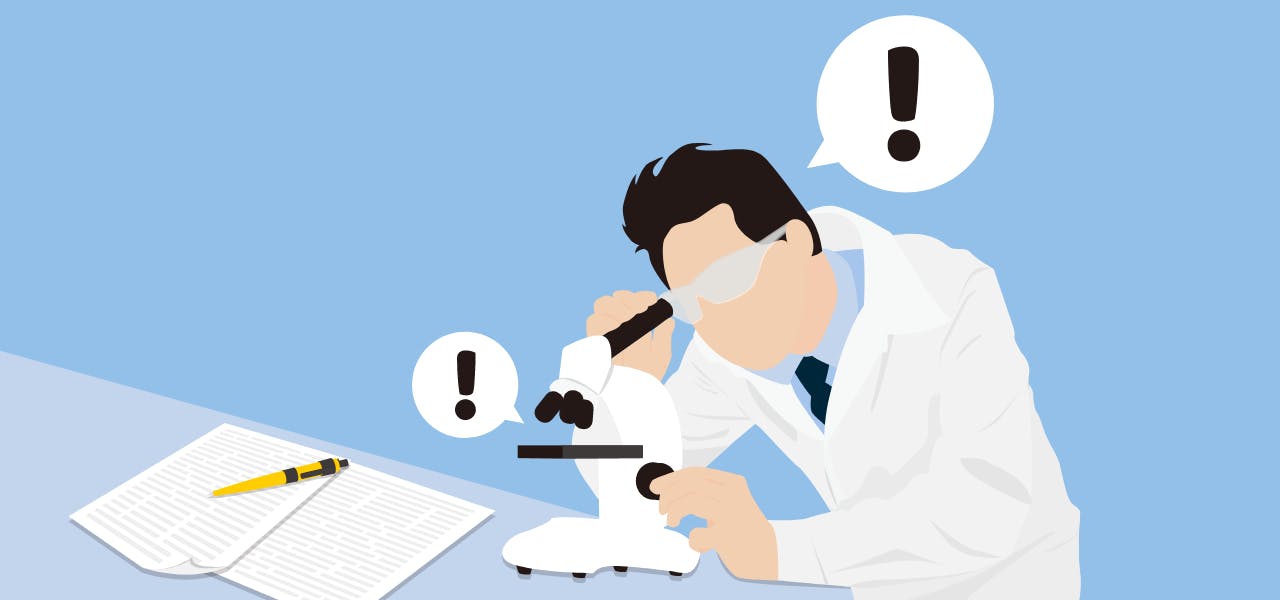Every research experiment relies on one solid foundation: that the researcher and all the data uncovered is unbiased and allowed to play out as it would naturally occur. Because of this requirement, there is always a chance that unexpected discoveries might show up at some point throughout the process. Scholars are educated and intelligent and make predetermined hypotheses as to what they’ll uncover in their experiment, and most of the time these theories are proven right or wrong without a lot of excitement involved. Occasionally, though, chance brings unexpected research outcomes that change the world.
As new answers and outcomes show up, sometimes they give us information that would have helpful impacts on society; other times, though, those unexpected results provide knowledge that won’t be appreciated but is necessary. How you deal with your unexpected outcome can make all the difference in the next steps.
How Bias Accidentally Changes the Results
Some data is inarguable. Quantitative numbers are tough to argue, but researchers can still decide whether to use the information presented to them or not, and those choices are sometimes based on subconscious or conscious bias and can be carefully avoided. The final decision of how qualitative data is used is subjective, though, and is always based on the judgment of the researcher as a final determining factor.
Because the researcher is considered to be the expert of their field regarding the subject tested, they are expected to use their experience and knowledge to decide what information is pertinent and what is superfluous or unnecessary. But this creates the perfect opportunity for bias to influence the results.
Bias occurs when variables that require a decision are influenced by conscious or subconscious decisions based on their morals, ethics, experiences, and determinations of right and wrong. Making a movement in the research that is not wholly neutral can change the entire experiment from that point on, thereby influencing the results. When bias mixes with procedural steps, the final outcome can be completely muddied. The experiment, often including years of work and multiple people’s efforts, could be invalidated because of one person’s bias, even if it was accidental. But sometimes chance and/or bias lead to discoveries that would never have been unearthed otherwise.
Examples of Unexpected Discoveries
As scientists are able to use more innovative technology to drive their research, it becomes less likely that unexpected results will occur. But previous examples of accidental findings have made huge impacts on the world, such as in the instances of:
● The microwave - Accidentally found by Percy Spencer in 1946 while he was working on a radar project
● X-rays - German physicist Wilhelm Roentgen stumbled upon this unexpected finding in 1895 when he was working with a cathode ray tube
● Velcro - Accidentally discovered in 1941 by Swiss engineer George de Mestral when he was hiking with his dog, subsequently used by NASA before making its way into mainstream use
● LSD - Not one of the more advantageous findings but accidental nonetheless, Lysergic acid in the LSD derivative was unexpectedly ingested by Albert Hoffman in 1943, with dizzying and unpleasant side effects
● Penicillin - Arguably the most commonly known and advantageous accidental discovery, penicillin heradled the advent of antibiotics when, in 1928, Sir Alexander Fleming, found mold on his petri dishes, but no bacteria growing around it
It’s likely that de Mestral and Roentgen rushed to report their findings to their program or university heads and were met with excitement. But in the case of Fleming, the consequences of his findings wouldn’t be realized for over a decade. And Hoffman’s discovery would lead to millions of deaths from people overdosing on the drug. Every unexpected discovery has, consequently, unexpected effects.
How to Handle an Unexpected Result in Your Research
Ultimately, you don’t know how your accidental results will play out in the long-term. But you have to have an approach to how to deal with them. Your intelligence should warn you if something is significantly wrong, such as an accidental LSD ingestion followed by unpleasant side effects. But your program or department head can help you decide how to approach the next steps of your results.
The most important thing to remember is to document everything. Every step, every action, and every decision you make before and after your discovery must be recorded in a safe place. Your results should be replicable with your notes, and everything to get to that point should be attributed to you.
From there, the choice of what to do with your findings might be out of your hands, depending on your funding source and those in charge of the program. Keep your work secure and speak to a trusted advisor as to how to move forward.
